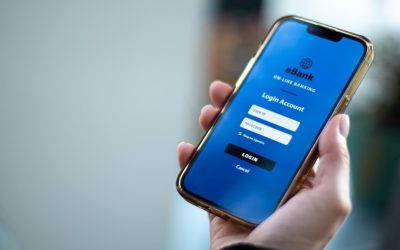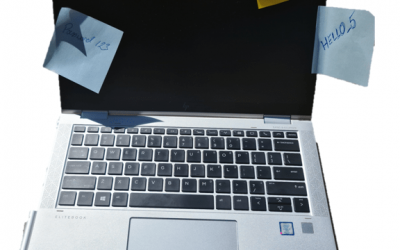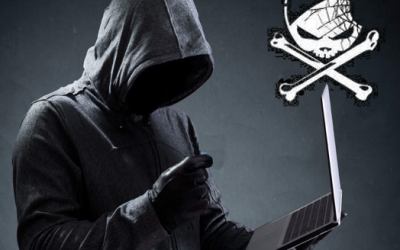Good practice last year isn’t good enough anymore.
Even cyber-insurance providers are getting more selective before accepting cover, or worse, before paying claims.
With the number of claims skyrocketing insurers are increasingly asking, “What did you do to protect yourself from the obvious and known risk from cyberhackers?”
The levels of protection you put in place 1 or 2 years ago probably aren’t adequate for the threats today. They are evolving so rapidly.

So what can you do?
Hackers aren’t waiting for you to make a decision to put protections in place.
They are spending every waking moment trying to find new ways of stealing your data. They have set themselves up as businesses to do evil. They hire the best and brightest talent, and have the latest tech – simply because it’s worth it. Its organised crime and these guys are the mafia of the modern age.
We see continuous hacks on most of our clients. These are attempts to penetrate their firewalls, or guess their passwords on Office 365. We see fake webpages through phishing attempts, and we see techniques to harvest password reset questions by asking for favourite teachers, or first cars, or favourite band on platforms like FaceBook.
That’s why your cyber-insurance and business continuity insurance providers will be starting to ask more demanding questions when you renew your cover. They are well aware of the risk and they want to know that you have taken all reasonable steps.
You need to be able to reassure them that you have:
- deep endpoint protection
- a penetration and vulnerability assessment
- data governance that is fit for purpose
- awareness programmes for all users and verification
- dark web monitoring
- multi-factor authentication and complex passwords
and so much more – the very items we have included in our KARE for Security services.
The question for you, and your insurer, is what level of protection is appropriate for your organisation so your insurer will cover you if you need to claim? That is why we have two levels of cyber-protection, and, because this isn’t static, it is why we keep investing and researching additional tools to help defend you from harm.
The Hackers are turning up their attacks on you – are you turning up your defences to match?
One quote we saw recently that rang true was:
“A cybercriminal only has to be lucky once, while a defender has to be lucky every minute of every day.”

What’s your next step? We’ve created a simple 9-point checklist to help you navigate the cyber-risk landscape and find the right solution for you.
TeamViewer Compromise
TeamViewer is a common piece for software that allows IT businesses to remotely access, control, manage, monitor, and repair devices – from laptops and mobile phones to industrial machines and robots. Many software vendors include it to allow them to remotely support...
Cert NZ Business online security assessment tool
A Personal Encounter with Cert NZ's Assessment Tool. Have you recently received an email about cyber-security that set off your system's alarms? It's ironic isn't it? That was my recent experience with an email from Cert NZ. Despite the initial warning, the email...
Avoid the IT Travel Woes
Free Webinar Replay : Avoid the IT Travel WoesBusiness travel is fraught enough. It's a nightmare to balance tight connections, and tough time zones with work colleagues that are accustomed to being able to link you into Teams meetings and urgent chats.How can you...
Lessons from the Change Healthcare attack. Why MFA Matters
By now, regular readers know how important MFA is. Unbelievably, there are still some people who think this is for someone else, and they don't need it themselves. Unfortunately, we are seeing some of these people fall victim to the very scams we've been writing...
What happened when we got told we’d been hacked?
“We’ve been hacked”. When you hear that the world stops. What does this mean? How bad is it? How can we manage that? That was the news earlier this week. It was quite confronting! Suddenly your careful plans for the day are thrown aside as your priorities have...
Can VPNs be defeated?
We’re reading about a flaw called ‘TunnelVision’ that could give hackers access to overcome virtually any VPN security solutions. It works by manipulating routing in DHCP, which is the mechanism networks use to hand out IP addresses to devices. DHCP has been around...
Will some of your emails stop?
Microsoft Exchange Online to retire Basic authentication We are going to face a big change coming in September 2025, Microsoft is going to be disabling SMTP Basic Authentication. This continues work they commenced a couple years ago to disable other protocols such as...
How to create passwords that hackers hate
A guide to making your online accounts more secure and less boring Have you ever used your birthday, your pet's name, or the word "password" as your password? If so, you're not alone. According to a study by NordPass, these are some of the most common and worst...
Is MFA enough? – the need for multiple cyber security layers.
At Kinetics, we've always emphasized the importance of multi-factor authentication (MFA) as a critical layer in cybersecurity. Without MFA, it's only a matter of time before you fall victim to a cyber attack. However, as we've also mentioned, no single defense is...
Securing your Mac
It does not seem that long ago I would hear Mac users say “I don’t need Anti-Virus”, or "Mac’s are not affected". To a certain extent they were right. Apple's use of tightly controlled application approvals reduced the surface area for attack. Mac users did not enjoy...










